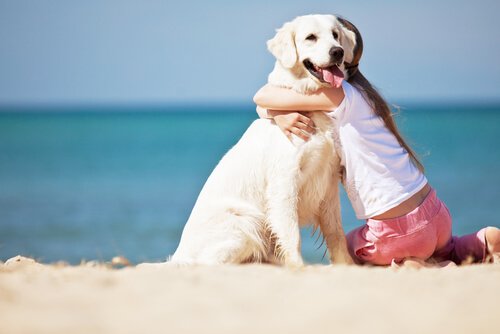Things Your Dog Wishes You Wouldn't Do

Not Using Enough Body Language
We humans are an expressive species and tend to demonstrate our feelings through words. Even if you don’t realize it, you’re probably talking to your dog all the time about your day or your feelings, just as you would with a close friend.
Dogs are able to associate some of our words with repetitive actions. For example, it’s easy for them to recognize key words such as ‘walk’, ‘eat’, ‘no’ or ‘good dog’. But this doesn’t mean that your dog can understand you. Animals are not able to speak or understand our language, no matter how hard you try.

The only resource your dog has to understand you, then, is body language. Be very careful when teaching your dog new signals, because owners confuse dogs a lot, just out of ignorance.
For example, there may be times when you want your dog to stop doing a certain behavior, but you lean forward when you reprimand them, which actually transmits approval.
Things Your Dog Wishes You Wouldn’t Do: Hugs
We are bombarded every day with endearing pictures of Golden Retrievers and adorable children playing and hugging in pretty landscapes. Dogs, as we know, are expressive and dependent animals that almost never reject being petted by their owners.

However, we tend to forget that animals do not communicate the same way as people, and that human contact that’s either too close for comfort or lasts too long can be unpleasant for an animal. For dogs, ‘hugs’ between members of the same species show dominance and mark their territory.
If a human does this, they’ll likely interpret the gesture in an aggressive or threatening way, even if they’re tolerating it. Therefore, do your best to teach children to give your pet the space it needs.
Even though TV has probably given you the impression that giving a dog a hug is normal, we have to take into account that people trained these animals to tolerate hugs.
Looking an Unfamiliar Dog Directly in the Eyes
Eye contact between members of our human species is a good tool for establishing connection and strengthening emotional bonds. In the animal kingdom, however, i t is usually used as a warning or to emphasize an animal’s position of dominance.

If you decide to approach a dog that is not yours and out of habit you do it while looking them directly in the eyes, it is likely that the dog will misinterpret your gesture and get defensive.
Try to approach slowly, with your hand at the height of their nose so they can smell it and know who you are before you try to pet them or get too close.
Things Your Dog Wishes You Wouldn’t Do: Too Much Freedom
Dogs still have a pack mentality and therefore accept that you are their leader. In nature, a leader gives orders, assigns roles within the hierarchical structure and acts consistently.
Your dog expects you to do that. If you give orders and teach your animal to obey and follow them, you are not being a harsh owner. You are instead providing your dog with the structure he needs to be comfortable with his role in the herd.

This is especially important for dominant dogs, because they are bred to have responsibility and feel useful. That’s why they are used as watch dogs or police dogs, despite the fact that their training can be quite challenging.
Forcing Your Dog to Be Friends with Animals or People They Dislike
Like any human, a dog will tend to avoid contact with any animal or human they don’t get good vibes from. The dog doesn’t care whether the individual in question is your sister or your partner’s dog. There are times when, simply put, they just do not “click” and it is likely that they never will.
Do not force unlikely relationships between your dog and people or animals they dislike. You will just be encouraging uncomfortable and even violent situations that will make your animal suffer or endanger other people or pets. If you’re taking a walk in the park and your dog growls at another animal, do not try to make them friends, because it’s not going to happen.